- Lawrence of Arabia (1962)
- 2001: A Space Odyssey (1968)
- The Miracle Worker (1962)
- Midnight Cowboy (1969)
- The Manchurian Candidate (1962)
- Psycho (1960)
- In the Heat of the Night (1967)
- Bonnie and Clyde (1967)
- The Great Escape (1963)
- À bout de souffle (1960)
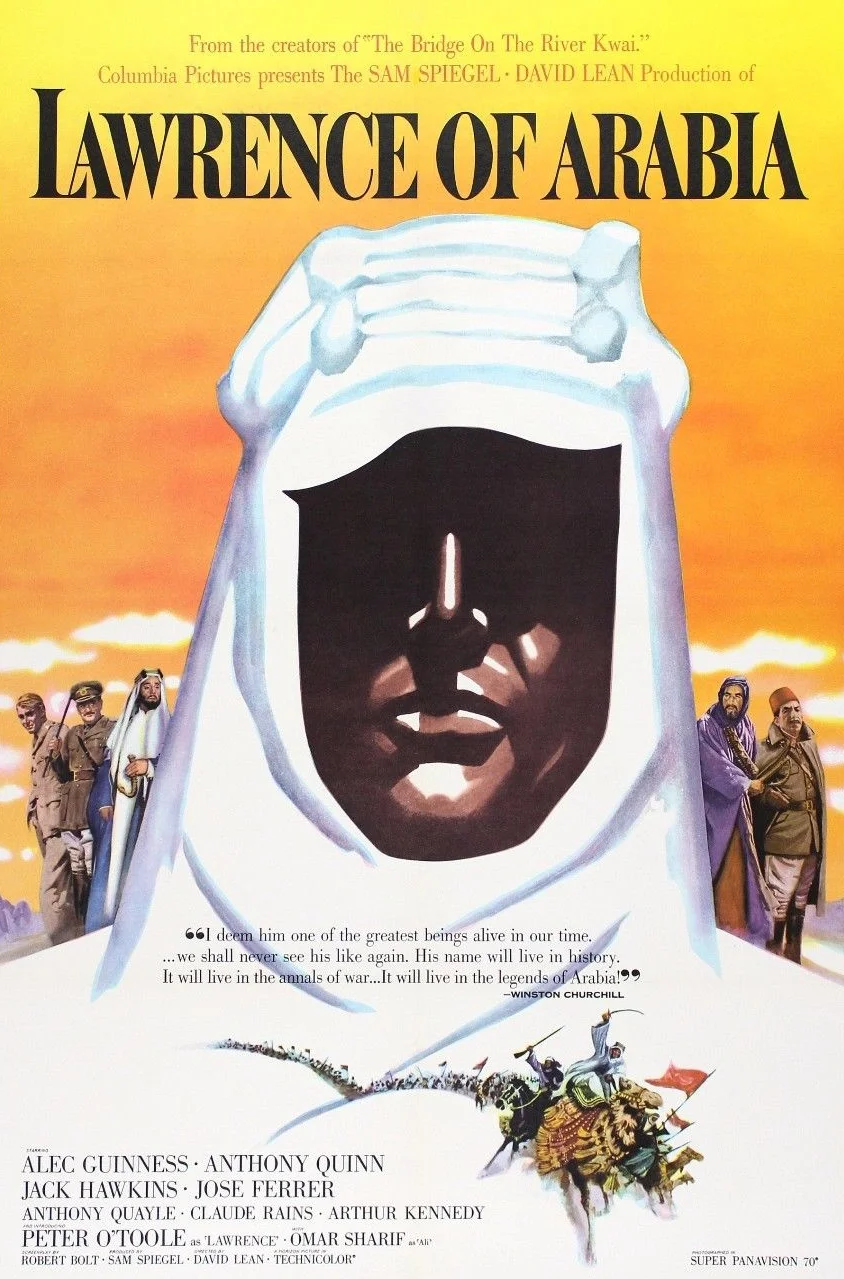 A magnificently made masterpiece, it's David Lean's magnum opus. One of the most remarkable jobs he did with his
characters is not only to make them larger than life but also mysterious in terms of their ambitions and desires.
Thanks to Freddie Young's spellbinding cinematography, it's impossible to deny the power of the desert that
Lawrence of Arabia brings to the screen.
A magnificently made masterpiece, it's David Lean's magnum opus. One of the most remarkable jobs he did with his
characters is not only to make them larger than life but also mysterious in terms of their ambitions and desires.
Thanks to Freddie Young's spellbinding cinematography, it's impossible to deny the power of the desert that
Lawrence of Arabia brings to the screen.
 Birth. Evolution. Mankind. Age. Exploration. Universe. Death. 2001: A Space Odyssey...you'll never see
anything like it, a brilliant visionary picture that's abstract, beautiful, complicated, and simple all at once.
Considering the year the movie was made in—and that's not 1968—but 1963 which is five years of work
to make the vision possible.
Birth. Evolution. Mankind. Age. Exploration. Universe. Death. 2001: A Space Odyssey...you'll never see
anything like it, a brilliant visionary picture that's abstract, beautiful, complicated, and simple all at once.
Considering the year the movie was made in—and that's not 1968—but 1963 which is five years of work
to make the vision possible.
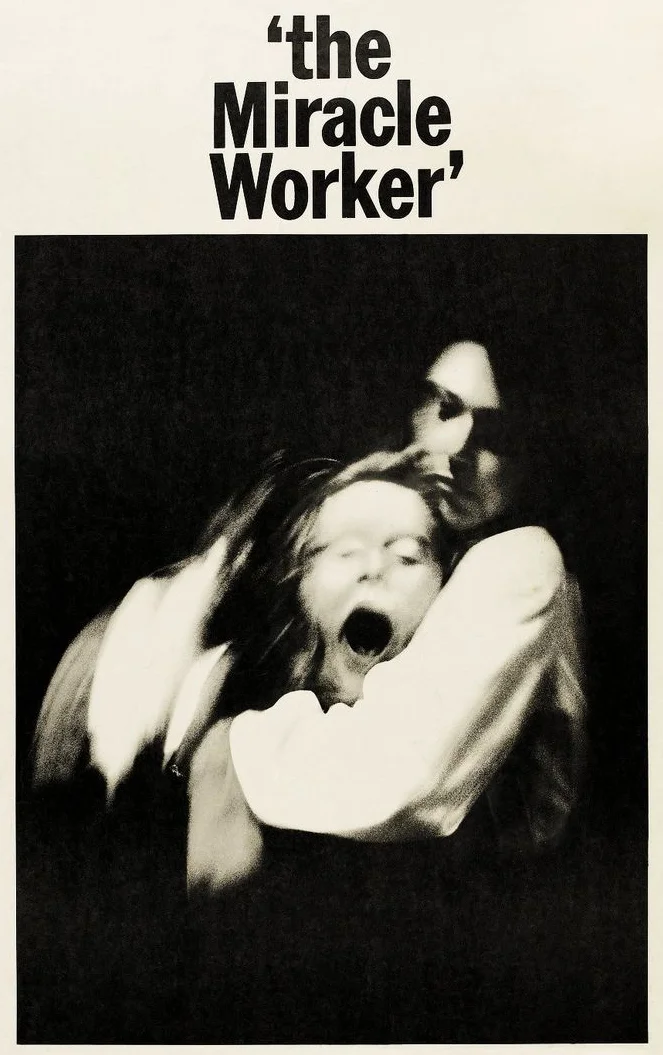 The Miracle Worker is a powerful, moving story about how Helen Keller was shown the light through language.
The Oscar wins for Patty Duke and Anne Bancroft are deserving, and the former's performance is in the top ten of
all time. It's impossible not to be moved by all of this.
The Miracle Worker is a powerful, moving story about how Helen Keller was shown the light through language.
The Oscar wins for Patty Duke and Anne Bancroft are deserving, and the former's performance is in the top ten of
all time. It's impossible not to be moved by all of this.
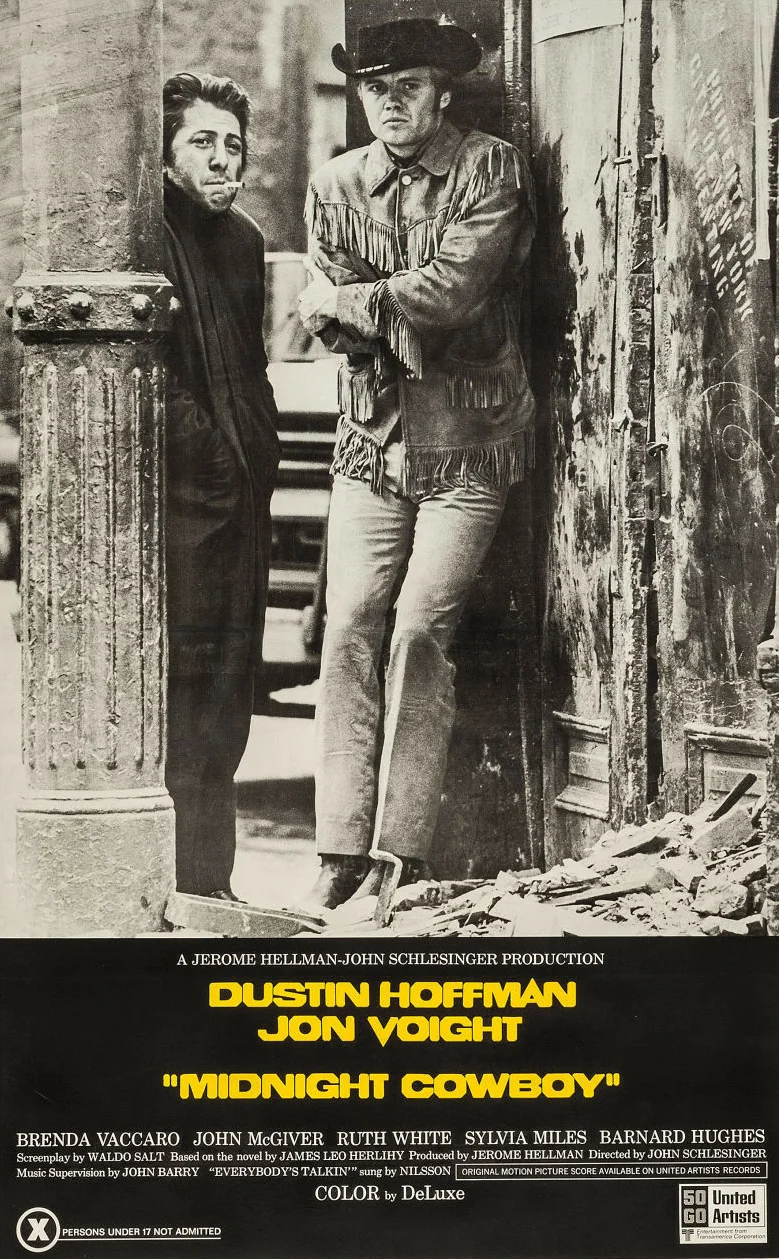 Jon Voight and Dustin Hoffman give the best performances of their careers. They'll be forever remembered for
this film. Midnight Cowboy is a study of human nature: the hopes, the broken dreams, the disillusionment,
the desperation, the suffering, the loneliness, and the loss of innocence. They're all brilliantly read on Jon
Voight's face. The "I'm walkin' here! I'm walkin' here!" scene is priceless.
Jon Voight and Dustin Hoffman give the best performances of their careers. They'll be forever remembered for
this film. Midnight Cowboy is a study of human nature: the hopes, the broken dreams, the disillusionment,
the desperation, the suffering, the loneliness, and the loss of innocence. They're all brilliantly read on Jon
Voight's face. The "I'm walkin' here! I'm walkin' here!" scene is priceless.
 The Manchurian Candidate is a brilliantly made political thriller picture with the most complex editing
imaginable. Now, remember the book was written in 1959 and the film was released in 1962 which was more than
one year before JFK's assassination. The President knew all about it and gave the filmmakers his expressed
approval to go ahead with the project. Pretty chilling stuff.
The Manchurian Candidate is a brilliantly made political thriller picture with the most complex editing
imaginable. Now, remember the book was written in 1959 and the film was released in 1962 which was more than
one year before JFK's assassination. The President knew all about it and gave the filmmakers his expressed
approval to go ahead with the project. Pretty chilling stuff.
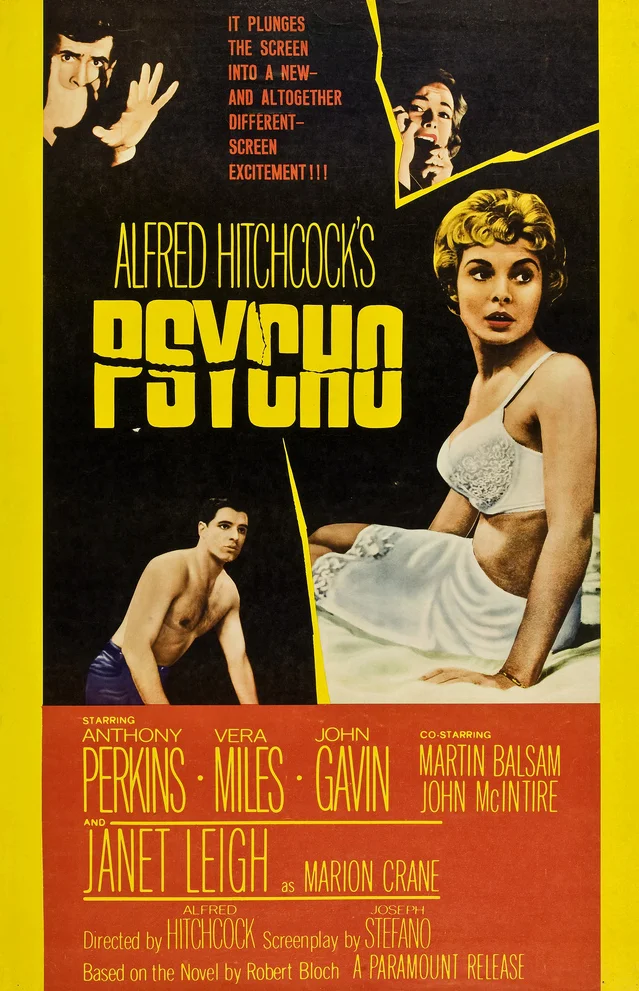 This psycho-sexual thriller went on to become the game changer of the slasher genre. Taking a shower will never
be the same again. Poor Marion Crane, she was the principal character for forty-eight minutes into the film and,
all of a sudden, got bumped off in one of the greatest and most shocking scenes in cinema history. There's no
actor who played a more famous villain than Anthony Perkins as Norman Bates. Alfred Hitchcock was truly the
Master of Suspense.
This psycho-sexual thriller went on to become the game changer of the slasher genre. Taking a shower will never
be the same again. Poor Marion Crane, she was the principal character for forty-eight minutes into the film and,
all of a sudden, got bumped off in one of the greatest and most shocking scenes in cinema history. There's no
actor who played a more famous villain than Anthony Perkins as Norman Bates. Alfred Hitchcock was truly the
Master of Suspense.
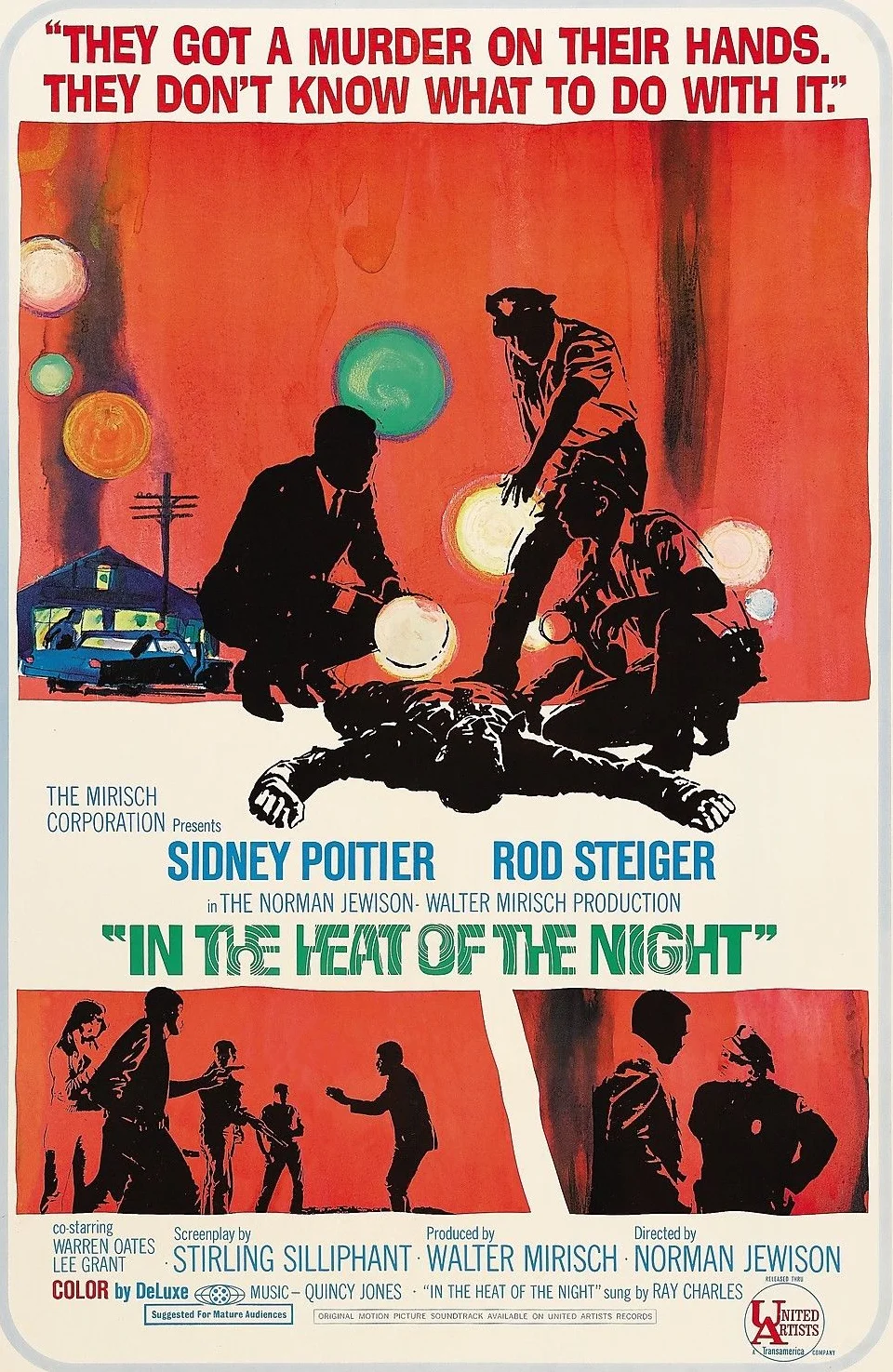 Two acting powerhouses come clashing each other in In the Heat of the Night: Sidney Poitier and Rod
Steiger. As Virgil Tibbs, Sidney Poitier is magical and has two iconic scenes: "They call me MISTER Tibbs!" and
when he slapped Mr. Endicott back. Of the latter, you could hear a pin drop in the middle of the Deep South.
Two acting powerhouses come clashing each other in In the Heat of the Night: Sidney Poitier and Rod
Steiger. As Virgil Tibbs, Sidney Poitier is magical and has two iconic scenes: "They call me MISTER Tibbs!" and
when he slapped Mr. Endicott back. Of the latter, you could hear a pin drop in the middle of the Deep South.
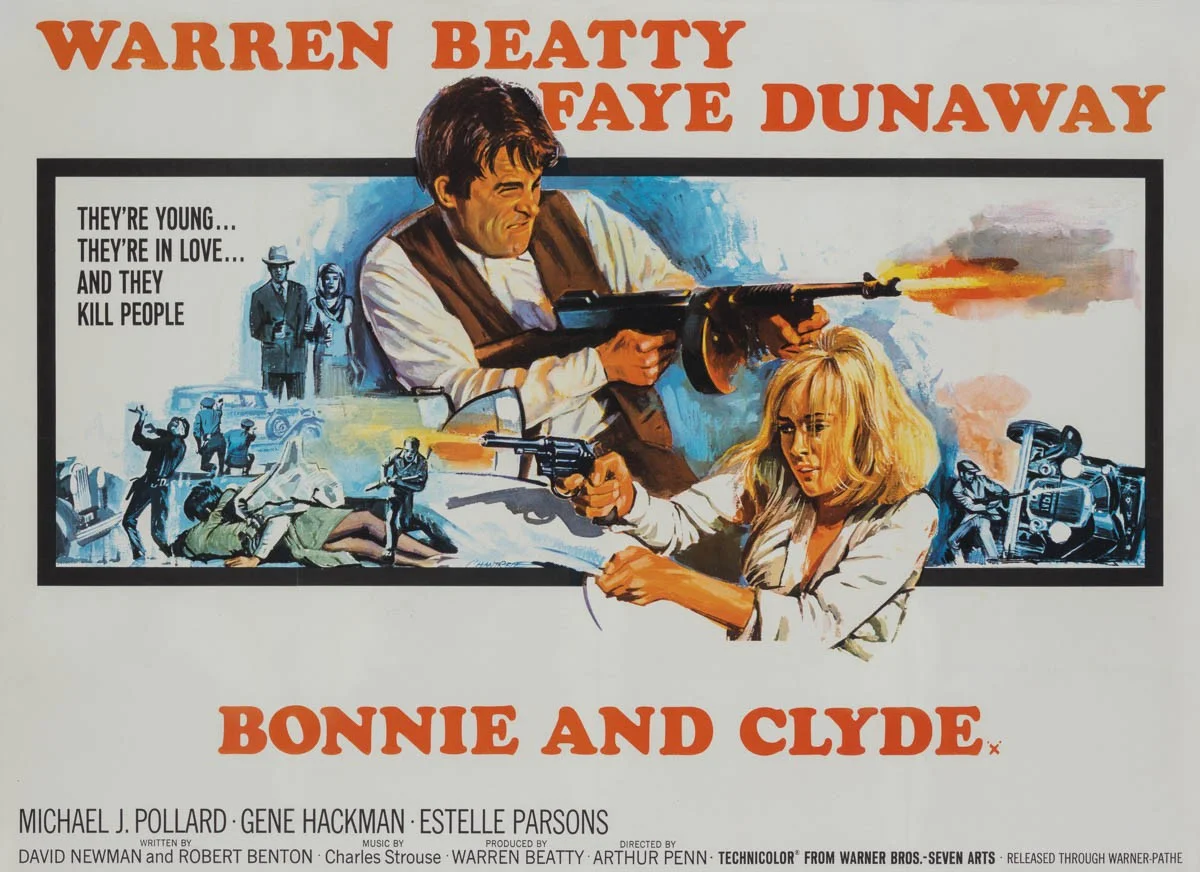 Because of the full range of colors, Bonnie and Clyde is a beautifully photographed film with impeccable
acting performances. Warren Beatty and Faye Dunaway have chemistry that's impossible to duplicate. Their violent
ending is unforgettable as well.
Because of the full range of colors, Bonnie and Clyde is a beautifully photographed film with impeccable
acting performances. Warren Beatty and Faye Dunaway have chemistry that's impossible to duplicate. Their violent
ending is unforgettable as well.
 By far one of the most thrilling movies made, The Great Escape...there's nothing like it. Steve McQueen's
performance as Captain Virgil Hilts, aka The Cooler King, cements his status as an international superstar
because of the motorcycle scenes. Who can forget the iconic jump at the end? The chemistry of the all-star cast,
the story, and the dramatic escape are the reasons behind the film's quick pace.
By far one of the most thrilling movies made, The Great Escape...there's nothing like it. Steve McQueen's
performance as Captain Virgil Hilts, aka The Cooler King, cements his status as an international superstar
because of the motorcycle scenes. Who can forget the iconic jump at the end? The chemistry of the all-star cast,
the story, and the dramatic escape are the reasons behind the film's quick pace.
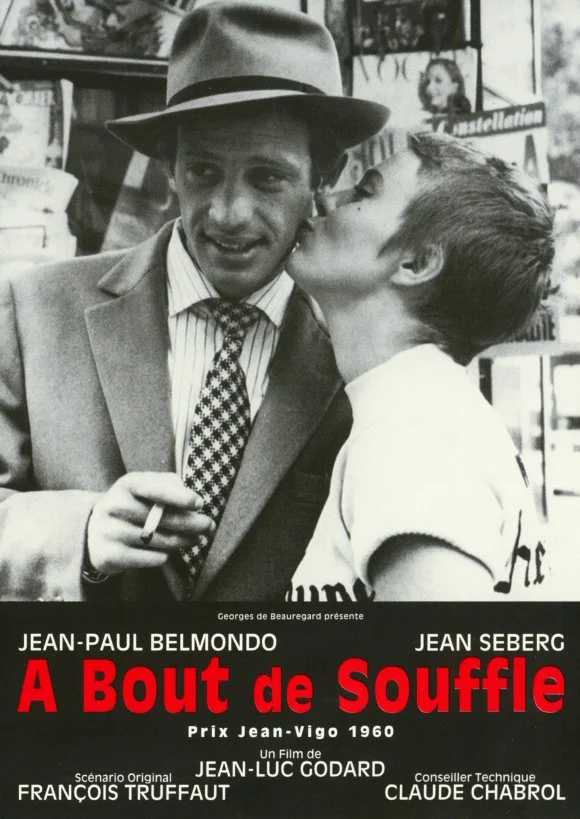 One of the greatest films in French cinema, À bout de souffle immortalized Jean-Paul Belmondo and Jean
Seberg. The jump cuts are famous and many classic scenes are seemingly improvisational, but there's
a James Dean quality that's exercised by the leading stars: infinite flexibility. It doesn't happen much in films.
One of the greatest films in French cinema, À bout de souffle immortalized Jean-Paul Belmondo and Jean
Seberg. The jump cuts are famous and many classic scenes are seemingly improvisational, but there's
a James Dean quality that's exercised by the leading stars: infinite flexibility. It doesn't happen much in films.